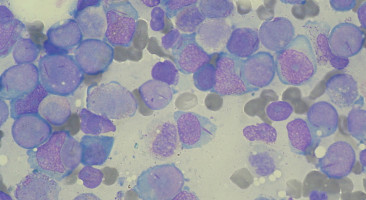
University of Hawai'i Cancer Center researchers discovered a novel therapeutic target and treatment strategy for acute myeloid leukaemia (AML), a cancer of the blood and bone marrow that normally requires prompt and aggressive treatment.
"New therapeutic targets and drugs are urgently needed to improve AML patient outcomes," said Wei Jia, PhD, researcher in the UH Cancer Center's Cancer Epidemiology Program.
Jia continued, "We found an increased use of fructose in AML patients. This unique metabolic feature predicts poor treatment outcomes in patients. Our study provides strong evidence that blocking fructose utilisation using a small molecule drug shows dramatic therapeutic benefit for AML treatment."
The conventional regimen for AML treatment is limited.
Only about 25 to 30 percent of patients survive for 5 years or more after they are diagnosed.
"This discovery can have a profound impact on cancer treatment outcomes, not just for AML patients, but possibly for many other patients with different types of cancers," said Dr Randall Holcombe, UH Cancer Center director.
"Metabolomics is a unique program at the Center, for which Dr Jia is an international leader."
The findings published in Cancer Cell highlight the unique ability of AML cells to switch their energy supply from glucose to fructose, when glucose is in short supply.
Fructose is the second most abundant blood sugar in the body and is used as a glucose alternative by AML cells in order for the cells to retain energy.
After the switch, cancer cells begin to multiply faster.
The study found a treatment potential by stopping the glucose transporter (GLUT 5).
This method restricts the AML energy supplies and effectively stops cancer growth.
By targeting the GLUT 5, researchers can effectively slow the growth of the cancer cells leading to a new promising treatment for AML patients.
"Our normal cells hardly rely on fructose for growth. This makes the fructose transport in cancer cells an attractive drug target. We are in the process of developing a GLUT5 inhibitor, thus cutting the cancer cells' energy source and eventually killing them. The new GLUT5 inhibitor can potentially be used alone, or in addition to the current chemotherapy drugs to enhance anti-cancer effects," said Jia.
Reference
Chen, Ying, Wang et al. Enhanced fructose utilization mediated by SLC2A5 is a unique metabolic feature of acute myeloid leukaemia with therapeutic potential, Cancer Cell, October 2016
Source: University of Hawaii Cancer Center